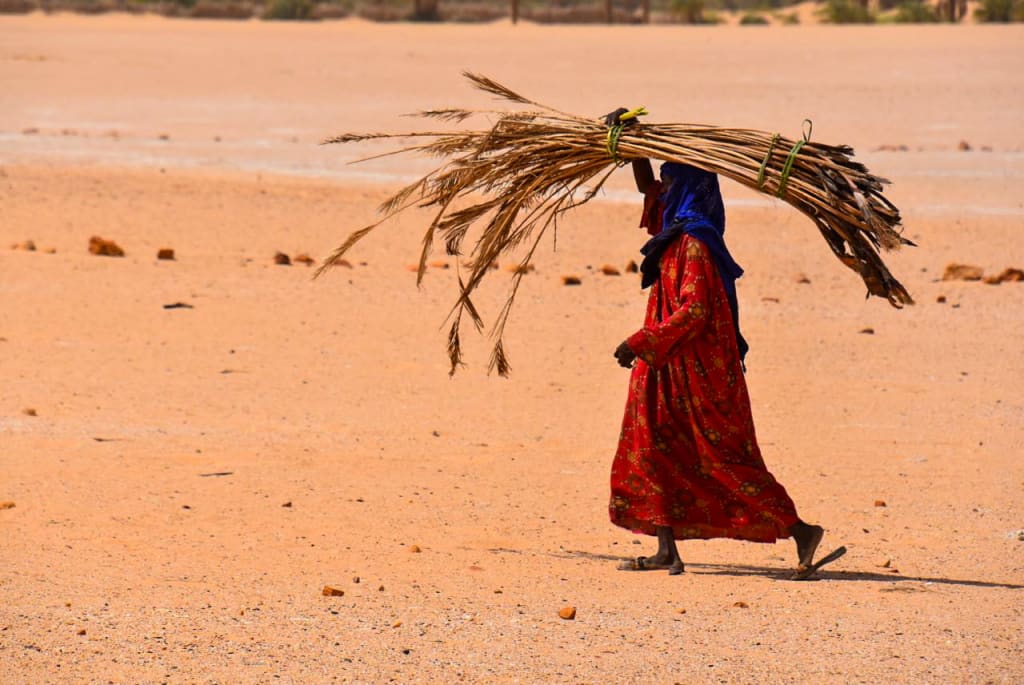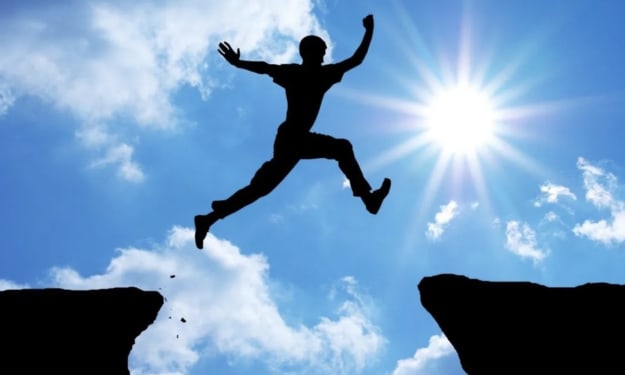For All the Women Who Helped Me Along the Longest Road.
A story of finding strength and resilience.

I am a different person today not because of just one individual woman. I have been shaped and influenced by strong female figures throughout countless instances of my life. But, the last few years have particularly been both a struggle and in some ways, the most transformational period in my journey to becoming a better human being overall.
At my lowest period, I was unemployed, technically homeless, and on my way to becoming divorced. A worlds away, in an earlier time, I was in a steady, progressing career, and a seemingly happy marriage. But, underneath all that was a bipolar diagnosis that could not, in my eyes at the time, be cured through the conventional North American mental health system. I felt unresponsive to medications and every single type of therapy thrown at me. I wanted to find other ways to heal. And, maybe that was a really pivotal point because perhaps I did not loathe myself so much as to close myself off from the idea that I could finally be something for myself and the world around me.
In September 2019, in a time that feels a world away now because of how the recent pandemic has spiralled, I travelled to mainly misunderstood places in the Middle East and North Africa to reconnect with the ideals of strength, resilience, and survival through others and their communities – and specifically, through women. And, indeed in those journeys, I did experience those traits in women that I met and the stories that they told. I never felt that I could fully experience the same depth of learning from my place at home; so, I left it all behind and got lost in the world of a few places where I believed I was going to discover deeply. This is not to say that there are not other places where there has been extreme suffering. Humanity falls apart everywhere, even at home; but these places were where I wanted to experience others connectively, and learn more about myself too.
My journey started in Afghanistan, Iraq, and from there, I went to Syria, Mali, North Sudan, Chad, Saudi Arabia, Yemen and Pakistan mostly as a lone female traveller. I volunteered for an NGO-backed women’s project – Becky’s Bathhouse, that works with one of the largest refugee camps – Moria, in Lesvos, Greece. That experience in itself was definitely eye opening as I interacted first-hand with countless refugee women who made harrowing journeys to defect from places that I had grown to love. I already could feel their immense pain before they even projected their voices to speak, and I feel so lucky to have shared in their stories. I hoped even for a connective five seconds that it meant something to say that I knew of somewhere that connected them with the home they miss so much.
I was never actually afraid of anything going wrong in my travels because I was already so intimated with hopelessness, and maybe this is the only reason why I would have the courage to make this journey in the first place. I was worried more so about how my motivations would be perceived by those I met along the way because in no way did I want to level set my suffering against theirs. I just wanted to reconnect with life.
With resolve and without fear, I indeed found strength and resilience everywhere I went to, in the women I met and their courageous stories. Each woman had aspirations and dreams – simple and complex - tied in a grounded love in her family and community, and driven by the need to survive even if she had experienced things like immense poverty, war trauma or societal oppression. Over the course of half a year, I met so many inspirational souls:
Iraqi mothers who wore pendants displaying pictures of the sons they lost to war. They spoke of their sons in childhood – within fond, happy memories. These women support each other in feeling stronger and moving on with life. They are a community.
Tribes of Chadian women who spend their entire days breaking down salt with their fingers in the harshest of heat, but laugh and smile with each other all the same.
West African entrepreneurial women who start small businesses like sewing schools to give girls in their communities opportunities and a perspective beyond life as just a wife and child taker.
In Pakistan, I encounter educated, progressive women who have dreams not all so different from mine – some want to be bankers, others wanted to work in tech; but, for varying reasons – family, finances – have let their dreams go astray. I want to share one specific story especially:
I speak to Starra for awhile during my time in Ghulkin, Pakistan. She sometimes dreams of being an accountant or banker still. But, somewhere along the way, she had to put those dreams on hold because she had children, did not have the financial means, and right now, it is just not feasible for her to go away for school. She still has three young children, and one teenager in tow.
She works long hours for the community school for little pay, drives back and forth between Ghulkin and Gulmit six days a week, and then comes home to be a fierceless mom and caretaker. She is the epitome of strength. Her intelligence and eloquence of spoken word sends chills through every part of me. She hits on the challenges of the education system within the villages right on the nose. Curriculum is very dated; the kids are still learning from the same resources that she used as a child. They are backwards, and this does not help the kids compete with children from inner-city schools. Some of the children give up and do not pursue higher education. This does not help the villages to progress. Her brow furrows as she speaks on the issues. There is no time for her to waste though as she sits there with me. She is making bread and chai at the same time.
I try to help her by helping her girls study for their English exam, but the comprehension curriculum is frustrating. I soak in her strength, but at the same time, I feel an underlying unease with myself. I wish I could help her. In some ways, I know I can if I put my mind to it. I need to have conversations at home; I have more power than I think. Maybe I can help her figure out how to go back to school, to access the education that she needs but be a mom at the same time. She inspires me to think about those challenges.
In South Yemen, I meet Fatimah, a nurse who works at a privately funded philanthropic hospital that operates to help those devastated by war. She speaks of the atrocities that she has to witness and work through as a front-line health-care worker in Yemen, a place with almost no health care infrastructure. There is a stoicism in her eyes, but so much power in the stories that she humbly tells because of the impact that she makes. At the end of our conversation, she jokes that I should be ‘my own woman’ in Yemen, and not wear a niqab. I tell her though that it is important to me to wear it in order to respect another woman’s culture.
In Lesvos, I speak with Ileef and Nargis – women who had not showered for months trying first to defect from Afghanistan, and then who were too afraid to step foot into a crowded ‘bathroom area’ for fear of being beaten and raped. That is a reality of most of these refugee camps – an indignity compromising all that is wrong with humanity.
I meet women in Aleppo trying so hard to start over and re-build their life after the Syrian conflict had annihilated their homes, family businesses, and those they loved most. Through these women, I heard stories of fathers who had to watch their daughters be sexually assaulted. I felt stifled in tears as I processed all of these words later onwards.
In the most bittersweet of ways, talking to all these women made me reconnect with the ideals of courage and heroism. These women control their lives and survival as much as I could do with my own. In no way did I want to level set my struggles against theirs, but they certainly reminded me of my place and ability in this world. I could be a different person if I wanted to. I did not have to give in to my sickness and struggles, or let them define me. This was the strongest form of inspiration that any one could ever give me. All this, through just the sharing of a story.
Even though they did not need my help, these women made me want to think manically of ideas to help them. They did this through courageously sharing their stories. I understood then that I needed to step back and think about what it was that they really needed. I wanted to be able first to tell their stories, and then work with people who could solve their problems more intelligently than I ever could alone. Travel is disruptive in nature, and at its very core, at least for mental health purposes, provides a person with perspectives that stretches one’s character and emotional wellbeing; something I had taken for granted, but appreciate so much now with the current pandemic crisis. The past six months and its experiences brought me to a place where I could talk openly about my own sufferings, even if there is no resolve to my story just yet.
Perhaps travelling on a women’s journey does not work for everybody, but the premise of what I am trying to share is that by opening up, I want to encourage others to do something for the sake of their own suffering especially in these hard times. It does not have to be through travelling, but through something that forces them to lean into what they have gone through. The cathartic nature of helping someone her own story, and coming to terms with the horrific sides of it, is that maybe one day I will finally come to terms with my own. Almost every day, for the past half year, several strong women out there in the most under-the-radar type of places helped me to change my perspective of the world, and finally be stable enough to share my words.
My mental health still deteriorates some days, but I try to maintain optimism. Sometimes, I smile and ‘turn on my brain’ for others, but half the time I just want to turn off my brain once and for all. But it is at moments like these that I must remember that I am accountable for every decision I make, and how my story starts over. At least I can tell my story. Halfway across the world, as I have experienced, there are communities – vulnerable women and children - in disarray who are experiencing the same struggles we face without the same capabilities.
I am grateful for all that has happened since that lead me to this place. I drowned in some ways, but with time I somewhat pulled myself above water. I am a work in progress, but I know deep down there are days where I am ‘trying my best’. This is all a journey still after all and I am ever so thankful for all the women who have helped me along that long road - to learn, to continue growing, and to reconnect with life.
About the Creator
Robyn Huang
Lost Wanderer. Bipolar-in-Healing. Semi-Storyteller.






Comments
There are no comments for this story
Be the first to respond and start the conversation.